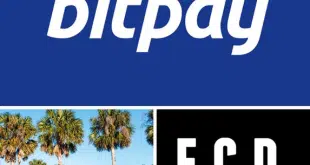Two processors specializing in prepaid wireless transactions announced a merger on Wednesday that will create the second-largest provider in the business and could create opportunities for independent sales organizations. In a deal for which terms were not announced, Emida Technologies Inc., Foothill Ranch, Calif., is combining with Orem, Utah-based Q Comm International Inc. The deal is expected to close July 10. The combined entity, which will be called Emida, will process prepaid wireless top-ups and other prepaid transactions at some 21,000 locations, 10,000 of which are domestic. This roughly doubles the U.S. retail network for both companies. “It's a merger to address scale,” says Dennis Andrews, chief executive at Emida, as well as expand the available talent base and take advantage of two compatible corporate cultures. The combined company processes 34 million transactions annually, with about one-third of that volume in the U.S., Andrews estimates. Most of Emida's non-U.S. business comes from Central and South America, as well as the Caribbean. Andrews and Michael Keough, Q Comm's chief executive, figure their company now ranks second among prepaid wireless processors, behind Euronet Worldwide's PaySpot Inc., Leawood, Kansas. The companies' focus on small merchants and chains could also create opportunities for ISOs as the expanded Emida grows, the two top executives say. ISOs tend to serve small merchants. “We're focused in the U.S. on the mom-and-pop environment, where we think the lion's share of prepaid wireless opportunity will be addressed,” says Andrews. Emida in particular has depended on ISOs to build out its retail network, with 95% of locations boarded by the sales agents. Some 75% of Q Comm's locations were signed by ISOs, Keough says. At the same time, the prepaid wireless market is growing in the U.S., where most wireless subscribers have historically been on billed, or post-paid, plans. Currently, about 15% of U.S. subscribers are on prepaid plans, and, facing saturation in traditional postpaid programs, wireless carriers are starting to push prepaid. “Carriers are finding prepaid offers opportunity,” says Keogh. That could translate into opportunity for both merchants and ISOs, since 92% of U.S. prepaid revenues come from retail-store sales, according to researcher Atlantic-ACM. Already, prepaid accounts for the majority of business at so-called mobile virtual network operators (MVNOs), resellers of carrier service. With a prepaid wireless transaction in a store, also know as point-of-sale activation (POSA), a customer tells a clerk what prepaid service he wants and hands over payment. The clerk enters the data in a POS terminal and receives back from the processor a PIN the customer can use to access his minutes. In some cases, the processor will credit the customer directly with the carrier. Both Emida and Q Comm work with all the major carriers as well as several MVNOs. With prepaid wireless accounting for 85% of combined transaction volume, this market is likely to remain the dominant business for the new Emida for some time. But other prepaid markets are growing. One that shows promise is stored value to support walk-in bill payment and other financial services for the underbanked, a business that accounts for 10% of Q Comm's revenue and about 6% of Emida's. “This has grown steadily, and I suspect it will start to grow faster,” says Keough. But regulation and other considerations make it a more difficult to manage. “That's a different sell than prepaid wireless,” he says. “It's more complex. There's a lot of interest in the product, but there's definitely some education involved to get [merchants] up to speed.” Q Comm, whose shares trade over the counter, carries a market capitalization of $2.87 million. It closed at 45 cents a share on Wednesday, up 19 cents on the day. The company has recorded fast growth, soaring from $16.6 million in revenue in 2004 to $46.3 million in 2005, the latest year for which data are available. It recorded $8.6 million in net losses in 2005, compared to $6.5 million in 2004.
Check Also
AES Partners with Genwin and other Digital Transactions News briefs from 3/21/25
Advanced Executive Sales LLC, a point-of-sale and e-commerce payments platform, and its affiliate Neon Bloom …




